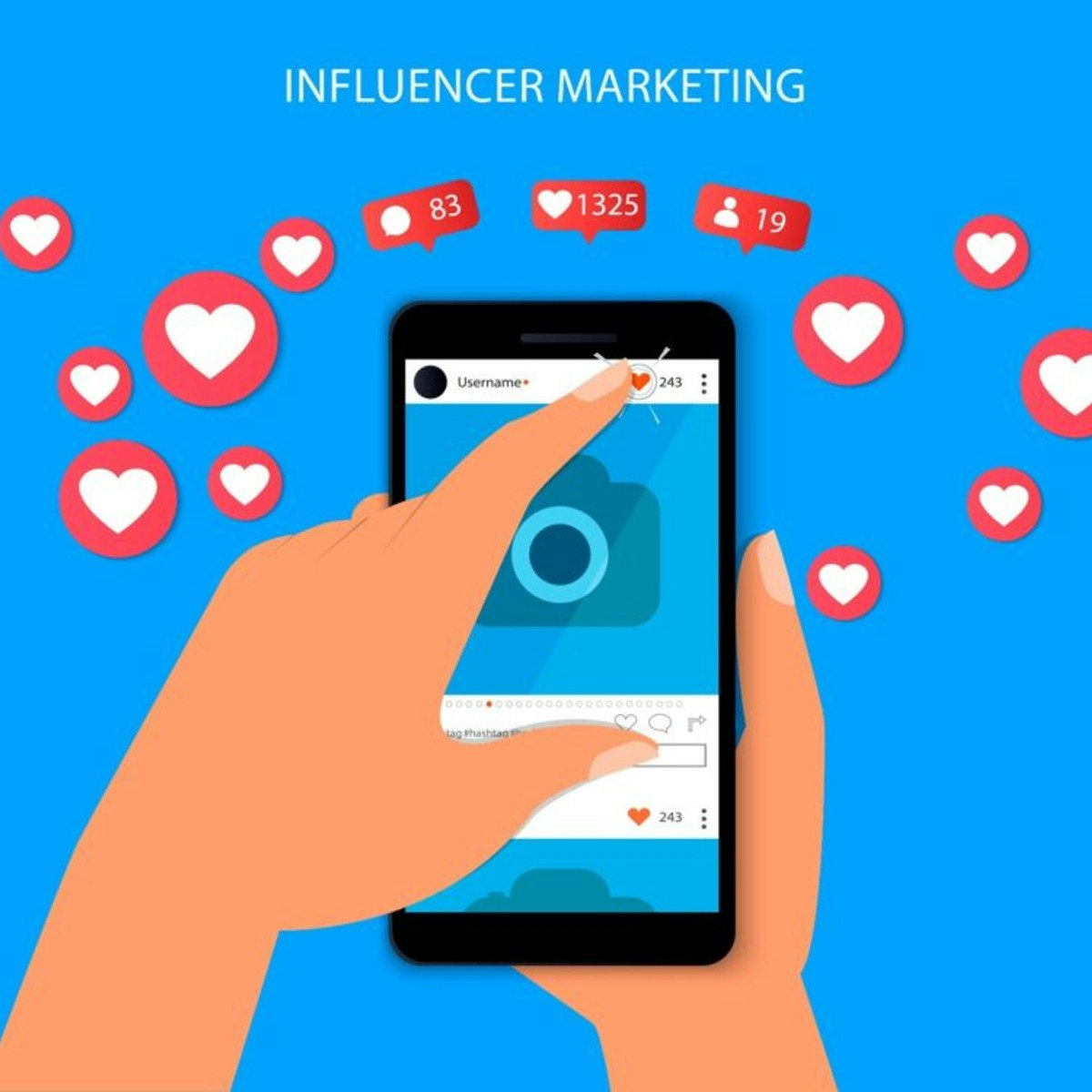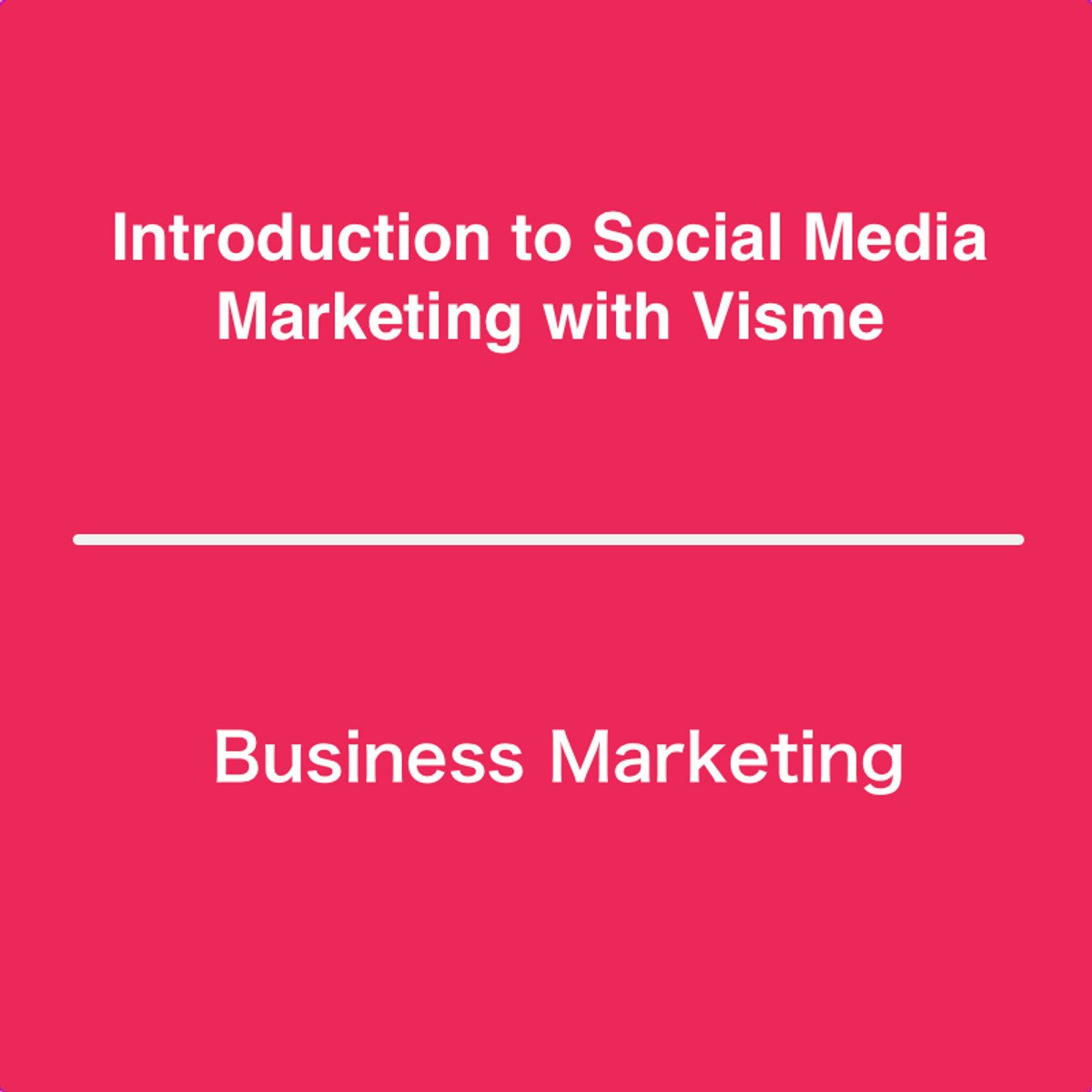Influencer Marketing Manager
Exploring a Career as an Influencer Marketing Manager
An Influencer Marketing Manager serves as a crucial link between brands and digital creators, commonly known as influencers. This role involves crafting, executing, and overseeing marketing campaigns that leverage the reach and credibility of these influencers to promote products, services, or brand messages. It's a dynamic field operating at the intersection of marketing strategy, relationship management, and digital media expertise.
Working as an Influencer Marketing Manager can be exciting for those passionate about social media, brand building, and creative collaboration. You'll engage directly with diverse personalities, shape brand narratives in the digital space, and analyze campaign performance using data. The constant evolution of social platforms and influencer dynamics ensures the role remains challenging and stimulating.
What Does an Influencer Marketing Manager Do?
The core functions of this role revolve around managing influencer partnerships to achieve specific marketing objectives. This demands a blend of strategic planning, interpersonal skills, and analytical thinking. Let's explore the key responsibilities that define the day-to-day reality of this career.
Developing and Executing Campaign Strategies
Influencer Marketing Managers are architects of influence. They design campaign strategies aligned with broader marketing goals, identifying target audiences, key performance indicators (KPIs), and appropriate platforms. This involves understanding the brand's voice and objectives deeply.
Execution requires meticulous planning, from outlining campaign briefs for influencers to coordinating content creation timelines and ensuring alignment with brand messaging. They must ensure the campaign concept resonates with both the brand's identity and the influencer's audience for authentic engagement.
Creativity is paramount in developing unique campaign ideas that stand out in a crowded digital landscape. This might involve brainstorming innovative content formats, contest mechanics, or experiential activations that leverage the influencer's strengths and audience connection.
These courses provide foundational knowledge and strategic insights into building effective influencer marketing campaigns.
Managing Relationships with Influencers
Building and maintaining strong, positive relationships with influencers is fundamental. This involves identifying potential partners whose audience and values align with the brand, conducting outreach, and fostering a collaborative environment. Trust and mutual respect are key.
Managers act as the primary point of contact for influencers throughout a campaign. They handle communication, provide necessary resources, address concerns, and ensure a smooth workflow. Effective communication prevents misunderstandings and keeps campaigns on track.
Negotiating contracts and compensation is also a critical aspect. This requires understanding fair market rates, defining clear deliverables and usage rights, and ensuring agreements protect both the brand and the influencer. Legal awareness regarding contracts is essential.
Tracking Performance and Analyzing ROI
Data analysis is central to evaluating campaign success. Managers track key metrics such as reach, engagement rates, website traffic, conversions, and overall return on investment (ROI). They use various analytics tools to gather and interpret this data.
Reporting performance to stakeholders is a regular task. This involves synthesizing complex data into clear, actionable insights and presenting findings in a compelling way. These reports inform future campaign strategies and demonstrate the value of influencer marketing efforts.
Based on performance analysis, managers optimize ongoing campaigns and refine future strategies. They identify what worked well and what didn't, allowing for continuous improvement and more effective allocation of resources. A/B testing different approaches might also be part of the optimization process.
This book offers insights into measuring the effectiveness of social media efforts, a crucial skill for this role.
Overseeing Budgets and Negotiations
Influencer Marketing Managers are often responsible for managing campaign budgets. This includes allocating funds across different influencers, platforms, and content types, ensuring cost-effectiveness while maximizing impact. Careful financial planning is crucial.
Negotiating rates with influencers and their agents requires market knowledge and strong negotiation skills. Managers must balance budget constraints with the need to secure high-quality, relevant influencers who can deliver results. Understanding influencer pricing models is important.
Tracking expenditures and ensuring campaigns stay within budget are ongoing responsibilities. This involves meticulous record-keeping and financial oversight throughout the campaign lifecycle, from initial agreements to final payments.
Essential Skills and Competencies for Success
Excelling as an Influencer Marketing Manager requires a diverse skill set, combining analytical abilities with creative flair and strong interpersonal skills. Aspiring professionals should focus on developing competencies across several key areas.
Data Analysis and Decision-Making
The ability to interpret campaign data is non-negotiable. Managers must be comfortable using analytics platforms to track metrics like engagement, reach, click-through rates, and conversions. This data informs strategic decisions and proves campaign value.
Beyond just tracking, effective managers translate data into actionable insights. They identify trends, understand audience behavior, and make informed recommendations for optimizing campaigns based on performance metrics. This requires critical thinking and problem-solving skills.
Reporting skills are also vital. Managers need to communicate complex data findings clearly and concisely to stakeholders, often using data visualization techniques to illustrate campaign impact and ROI effectively.
Social Media Platform Expertise
A deep understanding of various social media platforms (Instagram, TikTok, YouTube, Facebook, etc.) is essential. This includes knowing their unique algorithms, audience demographics, content formats, and best practices for engagement.
Staying current with platform updates and emerging trends is crucial in this fast-paced digital landscape. Managers must constantly learn and adapt their strategies to leverage new features and maintain relevance. Continuous learning is part of the job.
Expertise should extend beyond organic content to include paid social advertising strategies. Understanding how to run targeted ad campaigns to amplify influencer content or reach specific demographics can significantly enhance campaign effectiveness.
These courses cover marketing strategies for specific popular platforms.
Negotiation and Legal Compliance
Strong negotiation skills are needed when agreeing on terms, deliverables, and compensation with influencers or their agents. Managers must advocate for the brand's interests while maintaining positive relationships and ensuring fair agreements.
Understanding contract basics is crucial for drafting and reviewing influencer agreements. These contracts should clearly outline expectations, usage rights, payment schedules, and exclusivity clauses to prevent future disputes.
Awareness of legal and ethical guidelines, particularly regarding disclosures of sponsored content (like the FTC guidelines in the US), is vital. Managers must ensure all campaigns comply with relevant regulations to maintain brand reputation and avoid legal issues.
Campaign Creativity and Ideation
Successful influencer campaigns require creative thinking. Managers need to develop engaging concepts that align with the brand's message and resonate authentically with the target audience. Out-of-the-box ideas help campaigns stand out.
Understanding storytelling and content creation principles is important. While influencers often create the content, the manager guides the creative direction, ensuring it aligns with the campaign brief and brand identity.
Adaptability and problem-solving are key creative skills. When challenges arise or campaigns need adjustments, managers must think creatively to find solutions and pivot strategies effectively without compromising goals.
This book explores how to effectively position a product or brand, a key element in creative campaign ideation.
Educational Background for Influencer Marketing Managers
While practical experience is highly valued, a formal education can provide a strong foundation for a career in influencer marketing. Certain fields of study are particularly relevant.
Relevant Bachelor's Degrees
Degrees in Marketing are a common starting point. These programs typically cover core principles of marketing strategy, consumer behavior, market research, and branding, all directly applicable to influencer marketing.
Communications or Public Relations degrees are also highly relevant. Coursework often includes strategic communication, media relations, writing, and campaign planning, skills essential for managing brand messaging and influencer relationships.
Other related fields include Business Administration, Digital Media, or Advertising. Any program offering coursework in digital marketing, social media strategy, data analytics, or content creation can provide a valuable background.
Advanced Studies and Specializations
A Master's degree, perhaps an MBA with a marketing concentration or a Master's in Digital Marketing or Strategic Communications, can offer deeper expertise. Graduate programs often delve into advanced analytics, strategic planning, and leadership skills.
Some universities offer specialized courses or certificate programs specifically focused on social media or influencer marketing. These can provide targeted knowledge and practical skills highly valued by employers.
Capstone projects or thesis work within these programs allow students to conduct in-depth research or develop comprehensive marketing plans. These projects can serve as valuable portfolio pieces when entering the job market.
Leveraging Online Learning for Skill Development
Online learning offers flexible and accessible pathways to acquire the specialized skills needed for influencer marketing. Platforms like OpenCourser provide a vast array of resources for both aspiring and current professionals.
Online courses are highly suitable for building foundational knowledge and acquiring specific technical skills, such as social media analytics or platform-specific marketing tactics. They allow learners to study at their own pace and often focus on practical application.
For those already working or studying, online courses can supplement existing knowledge. You can use them to dive deeper into emerging trends, learn new tools, or specialize in areas like B2B influencer marketing or specific platforms.
Professionals can use online learning to stay current in this rapidly evolving field. Short courses or workshops on new AI tools, platform updates, or changing regulations can help maintain a competitive edge.
Specialized Certifications and Courses
Pursuing certifications in areas like social media marketing, digital analytics, or specific marketing platforms can demonstrate expertise to potential employers. Many reputable organizations and platforms offer certification programs online.
Look for courses focusing on practical skills like campaign management, content strategy for social media, community management, and ROI measurement. OpenCourser aggregates courses from various providers, making it easier to find relevant options.
Consider courses that incorporate real-world case studies or simulations. These provide context and help bridge the gap between theoretical knowledge and practical application. Learning from industry experts who share their experiences can be particularly valuable.
These online courses offer specialized knowledge in social media and influencer marketing, including the use of new technologies like AI.
These books offer comprehensive guides to social media marketing, covering strategy, platforms, and best practices.
Project-Based Learning and Portfolio Building
Theoretical knowledge is best solidified through practical application. Many online courses include projects, such as developing a mock influencer campaign strategy or analyzing sample data. These projects are invaluable learning experiences.
Consider creating your own projects to build a portfolio. You could manage a social media account for a small local business or non-profit, or even build your own personal brand presence on a platform to experiment with content strategies.
Document your projects clearly in a portfolio, showcasing the strategies you developed, the content created (if applicable), the results achieved (even if simulated), and the analytical skills you applied. A strong portfolio can significantly boost your job prospects, especially when transitioning careers.
OpenCourser features like the "Activities" section on course pages can suggest practical exercises to supplement your learning and help build portfolio-worthy experience.
Career Path and Advancement Opportunities
The career trajectory for an Influencer Marketing Manager can vary, but there are common pathways for growth and development within the field and into related areas.
Typical Entry Points and Progression
Many professionals enter influencer marketing through related entry-level roles like Marketing Coordinator, Social Media Assistant, or Junior Account Executive at an agency. These positions provide foundational experience in marketing principles and execution.
With experience, one might move into a dedicated Influencer Marketing Specialist role, focusing specifically on executing campaigns and managing relationships. This often serves as a stepping stone to a management position.
Promotion to Influencer Marketing Manager typically requires several years of relevant experience, demonstrated success in campaign management, strong strategic thinking, and leadership potential. The timeline varies based on individual performance and company structure.
Advancement and Lateral Moves
Senior roles beyond Manager might include Senior Influencer Marketing Manager, Head of Influencer Marketing, or Director of Social Media/Digital Marketing, involving greater strategic oversight, team leadership, and budget responsibility.
The skills developed as an Influencer Marketing Manager are transferable to other marketing disciplines. Lateral moves could include roles in Brand Strategy, Content Marketing, Digital Marketing Management, or Public Relations.
Some experienced professionals choose to become independent consultants or start their own influencer marketing agencies, leveraging their expertise to serve multiple clients.
Key Industry Trends Shaping the Role
The field of influencer marketing is constantly evolving, influenced by technological advancements, changing consumer behavior, and platform dynamics. Staying aware of these trends is crucial for success.
Rise of Micro and Nano-Influencers
Brands are increasingly partnering with micro-influencers (typically 10k-100k followers) and nano-influencers (often under 10k followers). These creators often boast higher engagement rates and more niche, dedicated audiences, offering authenticity and cost-effectiveness.
This trend requires managers to adapt their strategies for identifying, vetting, and managing a larger volume of smaller influencers. Scalable processes and tools become more important for handling these partnerships efficiently.
Measuring the collective impact of multiple micro-influencer campaigns requires sophisticated tracking and attribution models compared to working with a single macro-influencer.
Integration of Artificial Intelligence
AI-powered tools are emerging to streamline various aspects of influencer marketing. These tools can assist with influencer discovery based on audience demographics and performance data, predict campaign success, and even detect fraudulent engagement.
AI can also help analyze content performance at scale, identify trends, and optimize content recommendations. Managers who learn to leverage these tools can gain significant efficiency and effectiveness advantages.
While AI offers powerful assistance, the human element of relationship management, creative strategy, and ethical judgment remains critical. The future likely involves managers working collaboratively with AI tools.
This course specifically addresses using AI in social media and influencer marketing.
Evolving Regulatory Landscape
Regulatory bodies worldwide are paying closer attention to influencer marketing, particularly regarding disclosure of paid partnerships. Guidelines from organizations like the FTC in the US or the ASA in the UK continue to evolve.
Managers must stay informed about these regulations and ensure all campaigns are compliant. This includes clear and conspicuous disclosure by influencers, adherence to advertising standards, and truthfulness in endorsements.
Brand safety concerns also drive the need for robust vetting processes and clear contractual terms regarding content guidelines and influencer conduct to mitigate risks associated with controversial or off-brand behavior.
This book touches upon the auditing aspects relevant to social media compliance.
Navigating Ethical Challenges and Ensuring Brand Safety
Influencer marketing operates in a public space, making ethical conduct and brand safety paramount. Managers must navigate potential pitfalls proactively.
Disclosure and Transparency
Ensuring influencers clearly disclose sponsored content is a primary ethical and legal obligation. Managers must educate influencers on requirements and monitor compliance to maintain audience trust and adhere to regulations.
Transparency extends beyond simple disclosure hashtags. It involves ensuring the influencer's endorsement is genuine and reflects their honest opinion or experience with the product or service.
Failure to comply with disclosure rules can result in penalties for both the brand and the influencer, as well as significant damage to brand reputation.
Managing Controversies and Crises
Influencers, being public figures, can sometimes become involved in controversies. Managers need protocols for addressing such situations, whether it involves pausing campaigns, issuing statements, or terminating partnerships.
Proactive vetting of influencers' past behavior and online presence is crucial to minimize the risk of associating the brand with inappropriate or controversial figures. This requires thorough background checks.
Having a crisis communication plan in place allows for swift and effective responses if an influencer-related issue arises, helping to protect the brand's image.
Promoting Diversity and Representation
Ethical influencer marketing involves considering diversity and inclusion in partner selection. Brands and managers have a responsibility to reflect the diversity of their audiences and society in their campaigns.
This means actively seeking out influencers from various backgrounds, ethnicities, genders, abilities, and perspectives. It enhances authenticity and resonates more broadly with diverse consumer groups.
Avoiding stereotypes and ensuring respectful representation in campaign content is also crucial. Managers play a role in guiding creative direction to ensure inclusivity.
Global Perspectives and Market Differences
Influencer marketing is a global phenomenon, but strategies and practices can vary significantly across different regions and markets.
Regional Influencer Ecosystems
The definition of influencer tiers (nano, micro, macro, mega) and their associated costs can differ substantially by country or region. Popular platforms also vary; what works in North America might not be effective in Asia or Europe.
Cultural nuances heavily influence content preferences and communication styles. Managers overseeing international campaigns must understand these differences to ensure messaging is appropriate and resonates with local audiences.
Regulatory environments regarding advertising and disclosure also differ globally. Compliance requires knowledge of local laws in each market where campaigns are run.
Content Localization and Adaptation
Simply translating content is often insufficient for global campaigns. True localization involves adapting messaging, visuals, and even campaign concepts to align with local culture, values, and trends.
Working with local influencers who inherently understand the market nuances is often the most effective approach for international campaigns. They can provide valuable insights into what resonates with their specific audience.
Managers may need to coordinate with regional teams or agencies to ensure effective localization and campaign execution across diverse markets.
Opportunities in Emerging Markets
Many emerging economies present significant growth potential for influencer marketing as internet penetration and social media usage rise. These markets may offer opportunities to connect with new audiences.
However, navigating these markets can present unique challenges, such as different platform preferences, less established influencer ecosystems, or varying payment infrastructures.
Understanding the specific digital landscape, consumer behavior, and competitive environment within each emerging market is crucial for successful campaign planning and execution.
Frequently Asked Questions about Influencer Marketing Managers
Here are answers to some common questions individuals have when considering a career as an Influencer Marketing Manager.
What is the typical salary range?
Salaries vary widely based on experience, location, company size, and industry. Entry-level specialist roles might start lower, while experienced managers in major cities or large corporations can command significantly higher salaries. Researching salary data on sites like Glassdoor or LinkedIn Salary for specific locations provides current estimates.
Compensation can also include bonuses based on campaign performance or achieving specific KPIs. Freelance or consultant rates vary based on project scope and expertise.
As with many marketing roles, demonstrating a strong track record of delivering measurable results (ROI) is key to negotiating higher compensation throughout your career.
How can I transition from another marketing role?
Highlight transferable skills from your current role, such as project management, budget oversight, data analysis, communication, or content strategy. Emphasize any experience working with social media or external partners.
Gain specific knowledge through online courses or certifications focused on influencer marketing. Building a portfolio, even with spec work or small projects, demonstrates practical skills and initiative.
Networking within the influencer marketing space can be beneficial. Attend industry events (online or in-person), connect with professionals on LinkedIn, and seek informational interviews to learn more about the field and potential opportunities. Transitioning often requires demonstrating both relevant experience and specific domain knowledge.
Will AI replace Influencer Marketing Managers?
While AI tools can automate certain tasks like influencer discovery and data analysis, they are unlikely to replace the strategic, creative, and relationship-building aspects of the role entirely. AI is more likely to augment the manager's capabilities.
Skills like negotiation, nuanced relationship management, creative campaign ideation, ethical judgment, and strategic decision-making remain uniquely human strengths crucial for success in this field.
Professionals who embrace AI tools and learn how to leverage them effectively will likely have an advantage, becoming more efficient and data-driven in their approach. Adaptability and continuous learning are key.
Is it better to work freelance or in-house?
Both options have pros and cons. In-house roles offer stability, benefits, and deep immersion in a single brand's strategy. You become an expert on that brand's voice and goals.
Freelancing or consulting provides flexibility, variety in clients and projects, and potentially higher earning potential (though income can be less predictable). It requires strong self-discipline, business development skills, and financial management.
The best choice depends on individual preferences regarding work style, risk tolerance, and career goals. Some professionals may transition between in-house and freelance roles during their careers.
What are the essential tools and software?
Managers typically use a suite of tools. These include social media analytics platforms (native platform analytics, plus tools like Sprout Social or Hootsuite), influencer marketing platforms (e.g., AspireIQ, Grin, Upfluence) for discovery and campaign management, project management software (Asana, Trello), and communication tools (Slack, email).
Familiarity with basic office software (spreadsheets for budgeting, presentation software for reporting) is also necessary. Some roles may require experience with graphic design tools like Canva for creating briefs or mockups.
The specific tool stack often varies by company. Adaptability and a willingness to learn new software are important traits.
This course includes practice with Visme, a visual creation tool often used in social media.
This book provides a broad overview that can be helpful for understanding the context in which various tools operate.
How do you handle influencer-brand mismatches?
Thorough vetting during the selection process is the best prevention. This involves analyzing an influencer's content, audience demographics, engagement quality, past partnerships, and overall brand alignment before outreach.
Clear communication through detailed campaign briefs helps set expectations and ensure alignment on messaging, tone, and deliverables. Reviewing content before it goes live provides an opportunity to catch potential issues.
If a mismatch becomes apparent mid-campaign, open communication with the influencer is key. Depending on the severity and contractual terms, solutions might involve revising content, adjusting the strategy, or, in rare cases, ending the partnership professionally.
Concluding Thoughts
A career as an Influencer Marketing Manager offers a compelling blend of strategy, creativity, and relationship management within the dynamic world of digital marketing. It requires a diverse skill set, adaptability, and a keen understanding of social media trends and audience behavior. While demanding, it provides opportunities to shape brand narratives and drive measurable results in an increasingly influential sector. For those passionate about connecting brands with audiences through authentic voices, exploring this path can be a rewarding endeavor. With resources like online courses available through OpenCourser and dedicated effort, building the necessary skills and launching a career in this exciting field is certainly achievable.
Helpful Resources
To further explore influencer marketing and related fields, consider these resources:
Industry Insights & Regulations
- FTC Endorsement Guides: Official guidelines on disclosures in the United States.
- Harvard Business Review (Marketing Section): Articles and research on broader marketing trends and strategies.
- TechCrunch (Social/Apps Section): News on social media platform updates and tech trends impacting the space.
Learning & Development
- OpenCourser Marketing Category: Browse thousands of courses related to marketing, social media, and digital strategy.
- OpenCourser Learner's Guide: Tips and strategies for effective online learning.
- Influencer Marketing Search on OpenCourser: Find specific courses and books related to influencer marketing.











